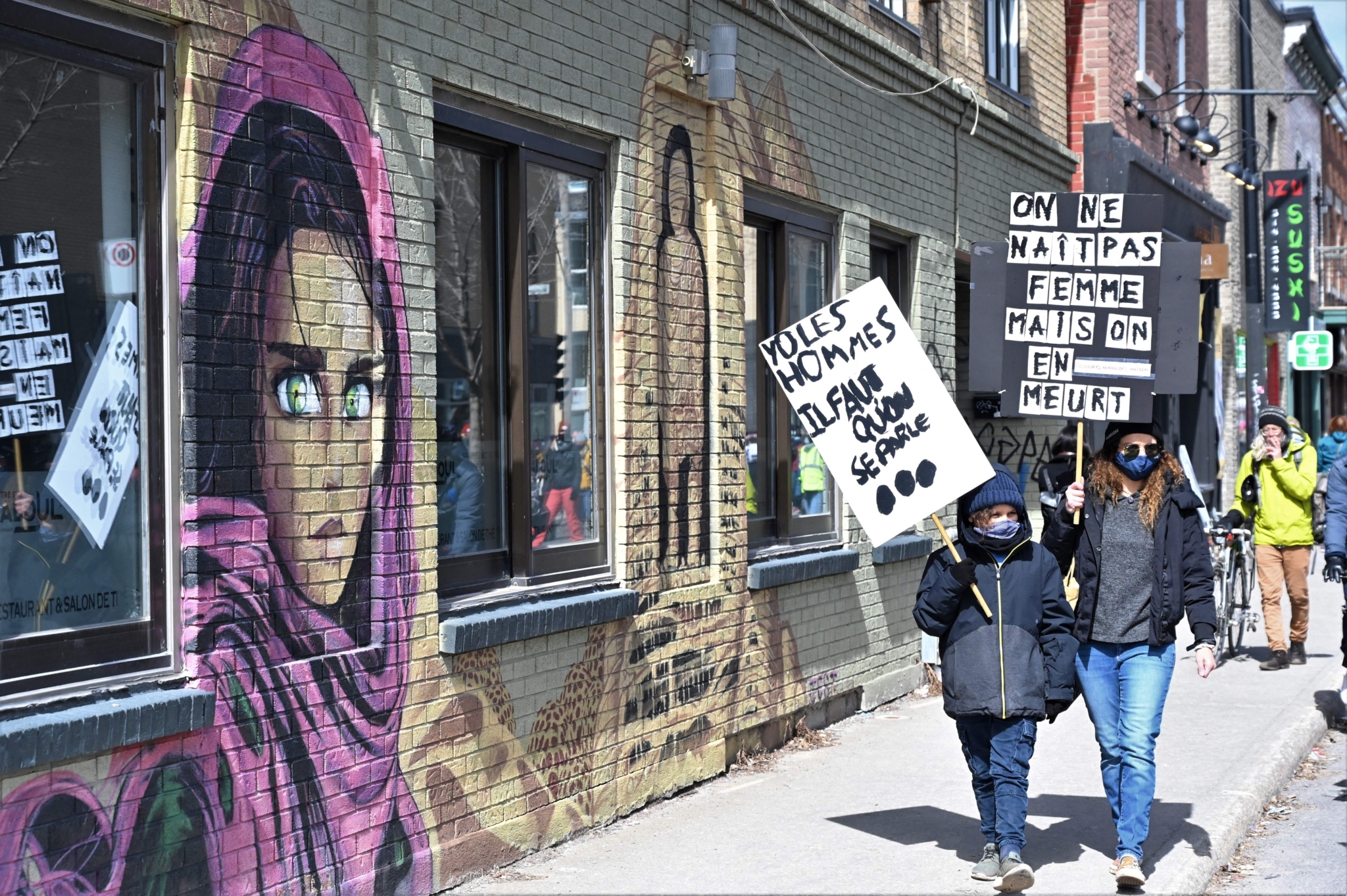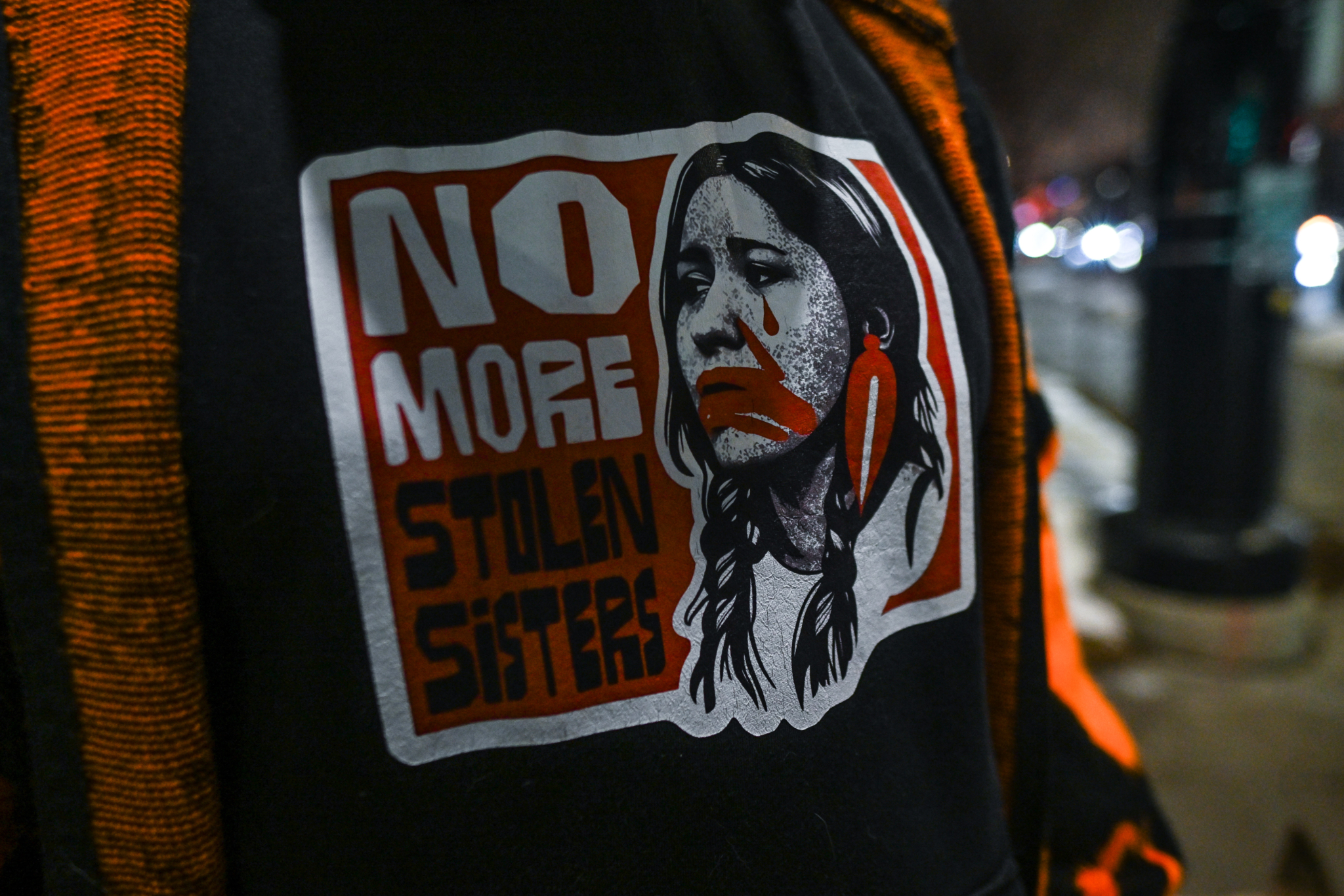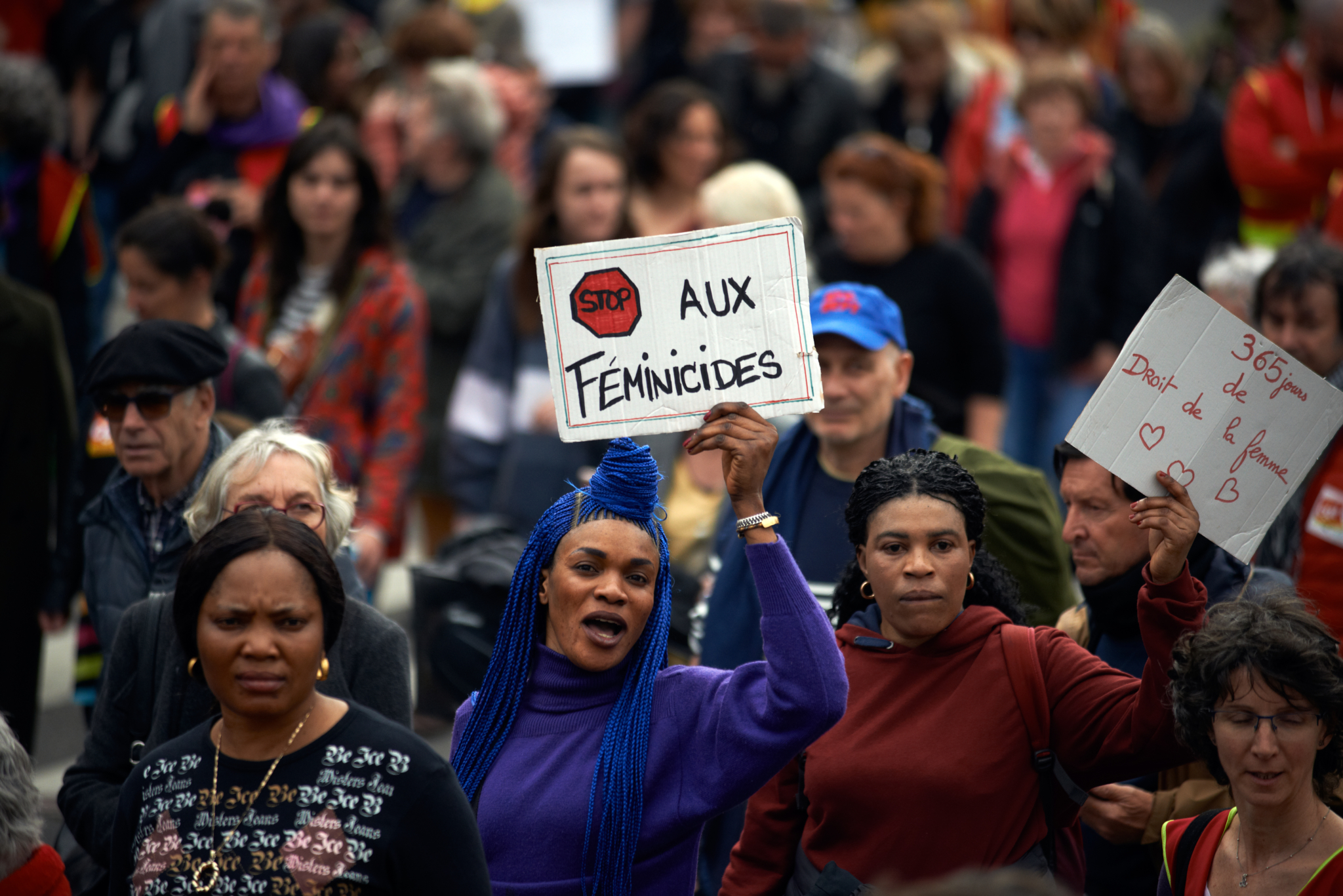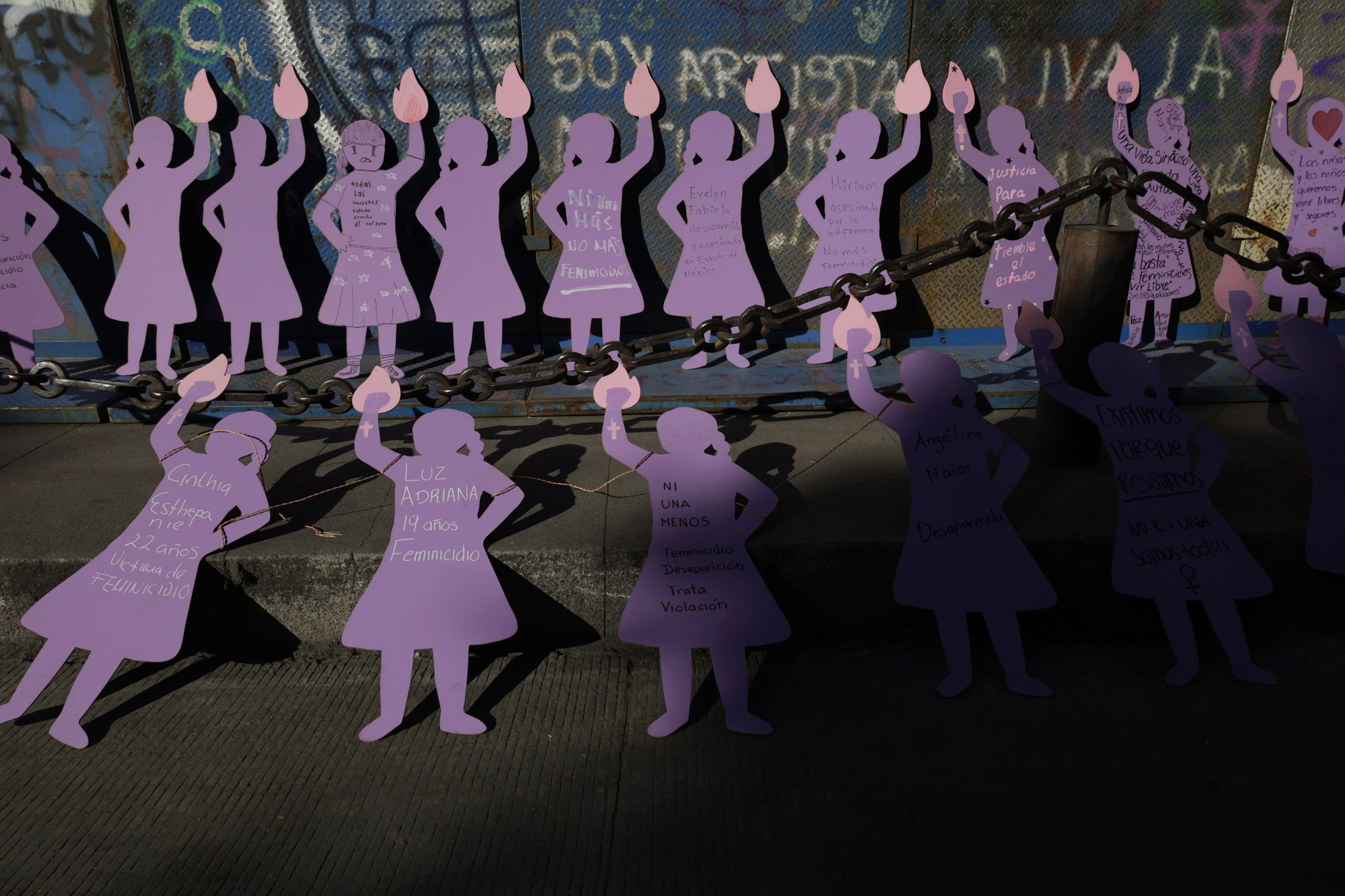The #16Days of Activism Against Gender-Based Violence is a global campaign that raises awareness about the systemic nature of gender-based violence. The #16Days of Activism begins on the International Day for the Elimination of Violence Against Women (November 25) and concludes on Human Rights Day (December 10).
During the #16Days and beyond, Canada must take urgent action to prevent all forms of gender-based violence and supports impacted individuals, families and communities.

Ontario Must Declare Intimate Partner Violence an Epidemic
Intimate partner violence (IPV) and femicides are an alarming trend in Canada and across the globe and one that can no longer be ignored. Globally approximately 51,100 women and girls were killed by their intimate partners or other family members during 2023. Between November 26, 2023, and November 25, 2024, 62 women were killed in acts of femicide in the province of Ontario alone. Within this disturbing femicide list, 25 women and girls were killed by intimate partner violence.
In 2022, the jury of the inquest into the murders of Carol Culleton, Anastasia Kuzyk, and Nathalie Warmerdam shared 86 recommendations to combat intimate partner violence and rising femicides. Since then, gender justice advocates and organizations have consistently called on Canada to act on the first recommendation and declare intimate partner violence an epidemic in Canada. As a result of this advocacy, the province of Nova Scotia and over 70 municipalities across Ontario have declared intimate partner violence an epidemic. Ontario has yet to pass Bill 173 – Intimate Partner Violence Epidemic Act, legislation that would officially recognize intimate partner violence as an epidemic.
TAKE ACTION
Take a moment to urge Ontario to immediately act on existing calls to pass Bill 173 and declare intimate partner violence an epidemic. A province-wide declaration will be a vital first step to prevent and end gender-based violence and will send a clear and strong message to survivors that they are seen, heard and unwaveringly supported.

NO MORE STOLEN SISTERS
In Canada, Indigenous women, girls and 2SLGBTQQIA+ Peoples are 6 times more likely to be murdered or go missing than non-Indigenous women and girls. Indigenous women also make up 16 per cent of all femicide victims and 11 per cent of all missing women.
Missing and murdered Indigenous women, girls and 2SLGBTQQIA+ Peoples (MMIWG2S+) cases are actively dismissed by law enforcement and the criminal legal system. Disappearances and deaths are often deemed substance use or medical cases rather than missing persons or femicide cases, leading to a lack of investigation and prompt inquiry. Amnesty International has continually criticized all levels of government for slow-moving efforts to prevent and end the MMIWG2S+ crisis.
SEARCH THE LANDFILLS UPDATE: GOOD NEWS!
In August 2023, Families of Sisters in Spirit and Amnesty International Canada urged the governments of Canada and Manitoba to search for and bring home the remains of First Nations women Morgan Harris, Marcedes Myran and Mashkode Bizhiki’ikwe after former Manitoba Premier Heather Stefanson refused to search the landfills for their remains.
“Premier Stefanson’s refusal to search the landfills is indefensible and sends the appalling message that the lives of Indigenous women, girls, Two Spirit and gender-diverse people are not valued in Canada,” said Ketty Nivyabandi, Secretary General of Amnesty International Canada’s English-Speaking Section. “The Government of Canada and the Government of Manitoba must prioritize and adequately fund a search of the landfills to return Marcedes, Morgan and Mashkode Bizhiki’ikwe to their loved ones without further delay.”
This year, the provincial and federal governments, under the leadership of Manitoba’s new Premier Wab Kinew honoured the calls of Morgan and Harris’s families and committed 20 million to fund the landfill search. The search for the women’s remains officially began this week!
“The most important part to me is the wellbeing and safety of the families. We are making this effort to find your loved ones. I hope that you know that you are loved and valued and that Morgan and Marcedes are loved and valued.
– Manitoba Premier Wab Kinew
BLACK FEMICIDE
Black femicide is a lethal form of ‘anti-Black gender-based violence’ (aBGBV), a term developed by Dr. Temitope Adefarakan that explains the intersections between anti-Black racism and feminized gender identity that lead to violence against Black women, girls, queer, trans, non-binary and gender-diverse people.
Despite the ongoing persistence of this lethal violence, Black femicide continue to be overlooked and erased in Canada. Currently, data on Black femicide is not being collected, resulting in under-reporting of femicide cases. The experiences of Black women, girls and 2SLGBTQQIA+ individuals are often overlooked in prevention and intervention efforts on femicide, despite evidence pointing to heightened exposure to anti-Black gender-based violence.
Indigenous, Black and racialized survivors experience multiple barriers to justice. Part of this experience includes law enforcement and legal systems that frequently fail to recognize the complexities of their lives and continue to perpetuate colonialism, systemic racism, discrimination, misogyny and harm. Indigenous and Black women and girls are also subject to historical and ongoing police abuse and violence.
“The issue of Black femicide is being overlooked, discounted and wholly erased because Black femicide data is not being collected, resulting in under-reporting of femicide cases”
-Dr. Temitope Adefarakan

In a public briefing on October 14 2024, Amnesty International, lived experience experts, and a group of civil society organizations addressed Canada’s record and progress on a range of issues including the rising rates of femicide cases, gendered anti-Black violence, and the MMIWG2S+ crisis at the United Nation’s Committee on the Elimination of Discrimination against Women’s (CEDAW) 89th Session in Geneva, Switzerland.
On 20 October 2024, the CEDAW Committee released its concluding observations of its review of Canada. Among many important recommendations, the Committee urged Canada to:
- Prioritize and allocate resources for femicide research and enhance data collection mechanisms to ensure accurate, intersectional and disaggregated statistics on femicide cases to strengthen prevention initiatives, resources and support services.
- Prevent, address, sanction and eradicate all forms of gender-based violence against rural and Indigenous women and girls, including environmental, spiritual, political, structural, institutional and cultural violence, that are attributable to extractive industries and ensure that Indigenous women and girls have timely and effective access to both non-Indigenous and Indigenous justice systems;
- Strengthen its legal framework and establish effective mechanisms to ensure that activities of mining companies and extractive industries are subject to the free, prior, and informed consent of and adequate benefit-sharing with affected Indigenous women;
- Ensure Indigenous women are fully consulted and able to give their free, prior, and informed consent in decisions affecting their lands and resources, and prevent and protect Indigenous women from gender-based violence in the context of extractive industries;
- Develop, in consultation with Indigenous women human rights defenders, effective mechanisms to prevent the criminalization of their actions to protect their lands and ensure that Canadian extractive companies operating domestically and abroad are held accountable for human rights violations.
In addition to the Committee’s recommendations, Amnesty International urge’s Canada to:
- Create a time-bound, Indigenous-led, trauma-informed and culturally sensitive National Action Plan “Implementation Strategy” outlining how all 231 Calls for Justice will be implemented to prevent and end violence against Indigenous women, girls and 2SLGBTQQIA+ Peoples.
- Recognize femicide as a distinct crime in the the Criminal Code of Canada.
- Follow the Nova Scotia Mass Casualty Commission’s recommendation to establish core funding to prevent and end gender-based violence commensurate with the scale of the problem. Emphasis must be on establishing funding for Indigenous, Black and racialized-led initiatives.
- Take urgent action to address systemic racism in the criminal legal system and law enforcement agencies, ensure accountability and reparations for rights abuses including excessive use of force. All investigations must be conducted without bias and with civilian and community oversight.
- Meaningfully engage with Indigenous survivors and families to create robust and well-funded Indigenous oversight mechanisms in all jurisdictions to oversee investigations concerning police violence and misconduct.





















